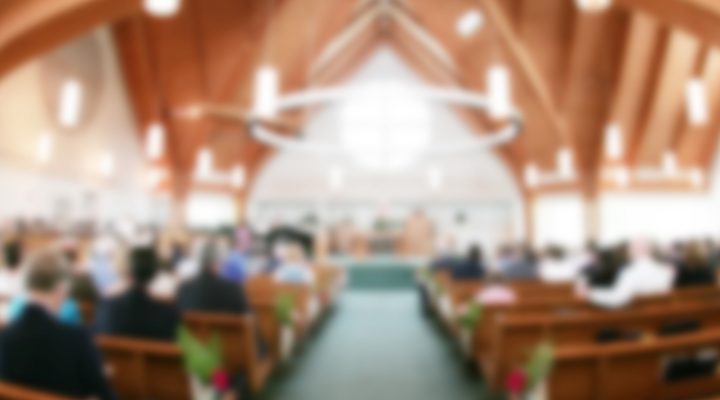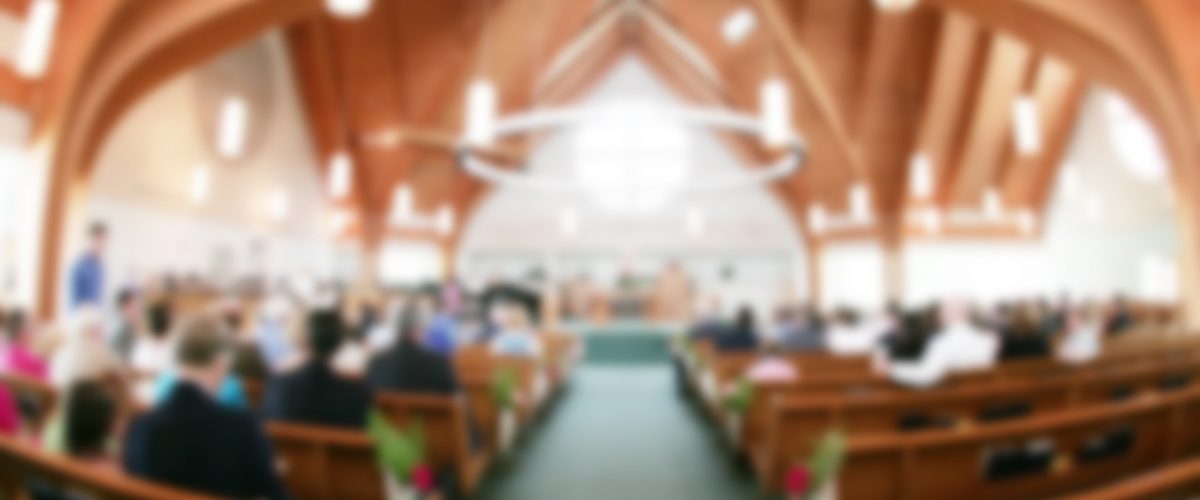There are queer folks in my church. I worship with them every Sunday.
There are queer folks in your church too, whether you know it or not. That’s just how statistics work.
More often than not, however, these beloved siblings are not safe in our churches. Some of the LGBTQ people in my church are out, although there are likely others who are not.
Earlier this month, it became clear that my own church was not safe for our LGBTQ congregants. Sunday morning, several members of our church staff were away, and we had a guest proclaimer. In an offhand comment near the end of his sermon, he warned against having homosexuals in areas of leadership because, he asserted, they molest children.
“The tension in the room immediately went to 11.”
The tension in the room immediately went to 11. Our holy sanctuary became an anti-sanctuary, especially for my queer siblings. Not only was the proclaimer repeating a patently false stereotype, he managed to dehumanize and shame my friends and destabilize our fellowship.
After the service, a college student said to me: “When I invite my friends here, I tell them it’s a safe place. Today it wasn’t safe.” I could only shake my head in sorrow and agreement.

Anna Sieges
The ordeal left me wondering, are any of our congregations safe if we haven’t made the move to say out loud on the website, at the door, in the bylaws and from the pulpit that we are affirming of LGBTQ folks? Can our sanctuaries actually be a sanctuary for everyone until we do?
To my church’s credit, the outpouring of support for the LGBTQ folks in our congregation was immediate and strong despite the fact that not all our members are aligned on LGBTQ inclusion. The next week, the pastor condemned the proclaimer’s remarks in the strongest possible terms. The fallout was contained. But is my church safe if such a thing can happen there?
The clobber passages vs. Acts
I had the honor to present at the Western North Carolina Baptist Fellowship Minister’s Retreat the week before that nuclear bomb fell on my sanctuary. Our theme was “Beyond LGBTQ Inclusion.”
As the token Bible scholar, I shared that I was aware of the so-called “clobber passages.” I also shared that none of these passages categorize modern sexual orientations or gender identities as vice or virtue, although one might be forgiven for thinking they do. If you come to the Bible expecting it to condemn same-sex relationships, you can find handy prooftexts in these passages. I find people often think the Bible condemns LGBTQ identities because they never have been exposed to another interpretive option. It is past time to give folks access to such an option.
“Eunuchs are sexually different, and they don’t fit nicely into ancient categories of sexual identity.”
In my preparation for the presentation, I was reminded of the newborn church in the book of Acts. When Philip encountered the Ethiopian eunuch on the wilderness road, he could have been forgiven for refusing to baptize such a person (Acts 8:26-40). Ancient Jewish tradition had a long history of excluding such individuals from full inclusion in worship. In fact, the reader may be led to assume the eunuch had experienced such exclusion during their recent Jerusalem visit. After all, eunuchs are sexually different, and they don’t fit nicely into ancient categories of sexual identity — where would such a person fit in a worship service? I am convinced the eunuch’s question to Philip, “Is there anything to stop me from being baptized?” is not rhetorical. I can imagine the eunuch gesturing to their body while asking.
To Philip’s credit, he baptized the eunuch on the spot. He had to call an audible. This Jesus movement was Jewish in nature, but Philip reconsidered his tradition in light of new information. Philip had shared the gospel with the eunuch and they wanted to be baptized. There was water along the wilderness road, and so (in my Baptist imagination) Philip dunked the eunuch into a new identity and reality — the radical affirmation of the kingdom of God.
In a parallel episode, Peter encounters a sheet full of unclean food along with the voice of God telling him to eat (Acts 10:9-16). Peter can, perhaps, be forgiven for refusing God’s direct command. His Scriptures and his tradition told him he never should eat such things. God’s voice persisted.
Utterly undermining everything Peter thought he knew about faithfully following God, God admonished Peter that he ought not “call anything unclean that God has made clean.” Days later, Peter’s vision became concrete as he stood in Cornelius’ home and witnessed unclean Gentiles receive the Holy Spirit. Peter asks, “Is there anything to keep these Gentiles from being baptized?” There was not. No one dared call anyone unclean the Holy Spirit had made clean.
When to pivot
The early church met the Spirit’s challenge and followed her lead by refusing to call unclean what God made clean. Church leaders had to pivot in light of new information that disrupted their tradition and theology. I think we are at a similar place. We know efforts to change one’s sexual orientation are futile. We know such things are not a choice. We even know theology demanding everyone fit into a heteronormative mold is accompanied by higher suicide rates among LGBTQ people.
“Church leaders had to pivot in light of new information that disrupted their tradition and theology.”
We have the information we need to pivot. Our sanctuaries will not be real sanctuaries until we do.
At the same minister’s retreat, Mack Dennis, pastor at First Baptist Asheville, shared what it was like to lead his congregation beyond LGBTQ inclusion to become a fully affirming church in which LGBTQ folks are not merely included but belong. He cautioned the ministers present that if they make this move, some people will want to crucify them. Such church leaders (the heterosexual ones, at least) will have to climb up on the cross with their LGBTQ siblings, a cruciform space he acknowledged queer folks already inhabit. Then he poignantly added, “I know of no other way to get to the resurrection.”
I live and worship in rural North Carolina. In my state, CBF North Carolina’s coordinating council canceled and then reinstated a planned workshop for our annual meeting. The workshop entails 10 churches sharing their journey to LGBTQ inclusion. I imagine the initial cancellation and subsequent reinstatement involved lengthy debates over whether CBFNC could weather a potentially divisive workshop. I sympathize with those in leadership, and I am grateful the workshop was reinstated. Many of us need the wisdom of those who already have walked this road as well as ways to imagine a world in which our churches could be fully affirming.
I am under no illusions concerning how costly moving a congregation toward publicly affirming LGBTQ identities would be. I am certain many congregations may not survive such a move. I understand. I really do.
But until our churches make the shift, our sanctuaries will not be safe for all God’s children, and we will have to admit that we are more comfortable leaving our LGBTQ siblings on the cross while we refuse to join them.
Anna Sieges serves as associate professor of religion at Gardner-Webb University in Boiling Springs, N.C. She loves shopping, discussing the Bible and romantic comedies. The opinions expressed here are her own.
Related articles:
My quest to find the word ‘homosexual’ in the Bible | Opinion by Ed Oxford
My journey toward LGBTQ inclusion: God still speaks | Opinion by Chris Conley
10 things we’re learning about the LGBTQ debate in the church | Opinion by Mark Wingfield


